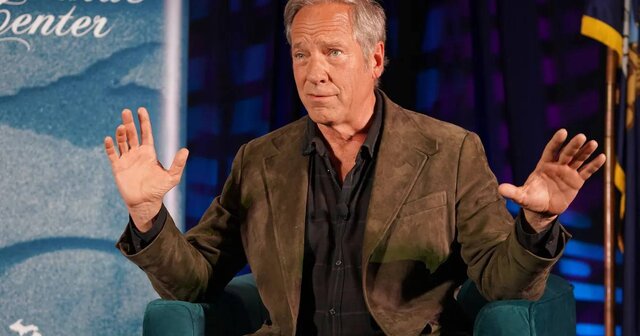
This article originally appeared in The Detroit News May 6, 2025.
“What’s the dirtiest job you’ve ever had?”
I was with a group of friends and this question came up. We each shared our stories. One guy had power washed sidewalks soaked in a backsplash of grime. Another worked in manufacturing; he finished each day with forearms bristling with tiny shards of metal. Another catered major events in New York City.
Our discussion was inspired by Mike Rowe, of “Dirty Jobs” fame, who spoke last week at a Mackinac Center dinner at the Henry Ford Museum.
Rowe is using his platform to advocate for skilled trades. He warns of a growing shortage of people who can wire, weld, plumb or machine. “Every year for the last 12 years, for five tradesmen who retire and leave the workforce, two replace them,” Rowe said.
An organization that does recruiting for national defense industry manufacturing told Rowe it needs 140,000 skilled workers over the next seven years. “That’s one call from one company that most of you guys have never heard of,” Rowe told the audience. Meanwhile, he said, 70,000 jobs in collision repair and auto tech sit unfilled.
Rowe rattled off stark numbers: U.S. college graduates are burdened with $1.7 trillion in student debt. More than 7 million jobs sit open, most of which don’t require a four-year degree. And 7.2 million able-bodied men are neither working nor looking for work.
“I don’t think you need to be an economist to look at that and begin to triangulate something troubling,” Rowe said. Those 7.2 million men are “not involved with the Kiwanis Club or the Jaycees. They’re not volunteering at their local church.” He described civic involvement as the “grout that holds the tiles together” in society.
How did we end up here?
For starters, Rowe points to the disappearance of high school shop class. When schools dropped shop class, they obscured the skilled-trades career path. Add to that the relentless pressure to attend college: “You told a whole generation they were screwed if they didn’t go in this direction. And then you freed up a bottomless pile of money and encouraged them to borrow whatever it took to pursue their dream.”
Opportunities do exist, said Rowe, especially for people who are willing to go where the work is. But he poked fun at current remote work expectations. “I want my great job and I want it in my current ZIP code and I want it now, please,” he joked.
So, what can be done?
Rowe doubts D.C. can fix this. “I don’t think the real solution to the problem we’re talking about ends with .gov,” he said. “I do think the wrong policies can hurt us.”
At one point in his speech Rowe stood and applauded a group of high schoolers in attendance who are planning careers in the trades. “You’re going to be called upon in a couple of years to explain yourselves to a skeptical public,” Rowe told them. “You’re going to need to be great at what you do.”
To support the next generation of skilled workers, Rowe’s foundation offers a work ethic scholarship. Applicants must sign his “sweat pledge,” committing to an old-school work ethic: showing up early, taking thankless tasks and recognizing the world is not fair.
Amazingly, some parents complain about the pledge. Rowe’s response: “This particular pile of free money is probably not for you.”
My dirtiest job? In high school, I worked as a janitor cleaning public restrooms. Scrubbing a toilet at a truck stop isn’t glamorous. But it taught me the joy of tackling a tough job and doing it well.
Permission to reprint this blog post in whole or in part is hereby granted, provided that the author (or authors) and the Mackinac Center for Public Policy are properly cited.
Get insightful commentary and the most reliable research on Michigan issues sent straight to your inbox.

The Mackinac Center for Public Policy is a nonprofit research and educational institute that advances the principles of free markets and limited government. Through our research and education programs, we challenge government overreach and advocate for a free-market approach to public policy that frees people to realize their potential and dreams.
Please consider contributing to our work to advance a freer and more prosperous state.

Donate | About | Blog | Pressroom | Publications | Careers | Site Map | Email Signup | Contact